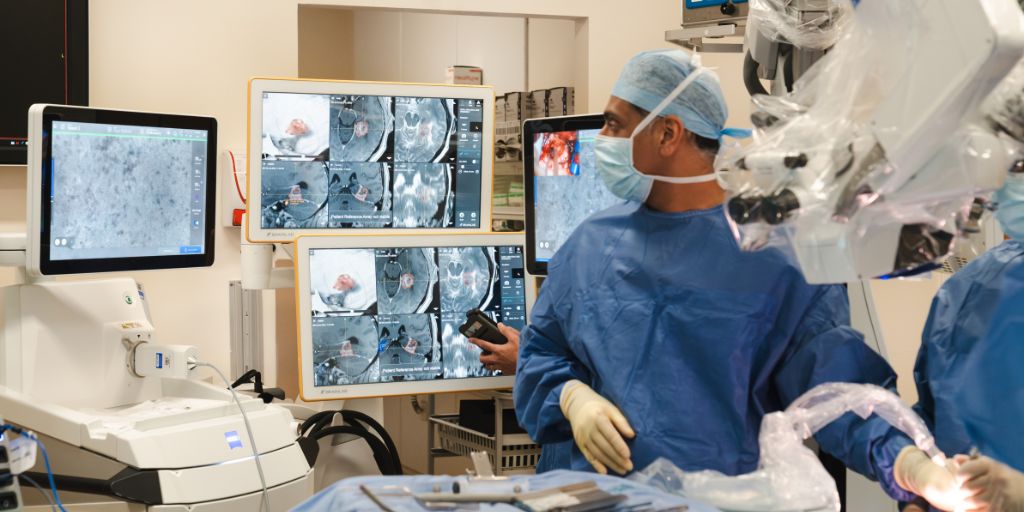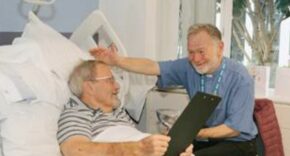
Leeds Hospitals Charity has invested £150,000 to fund state-of-the-art equipment at Leeds Teaching Hospitals NHS Trust that can more effectively diagnose and operate on brain tumours.
The Zeiss Convivo Pathology Suite allows surgeons to use innovative new technology to produce high quality images of tumours in real-time. This means that pathologists can make a quicker and more accurate diagnosis during surgery and surgeons can remove as much of the tumour as possible with minimal damage to healthy cells surrounding it.
Thanks to donations, Leeds is pioneering the use of this technology in the UK, which could benefit up to 300 patients across Leeds Children’s Hospital and Leeds Teaching Hospitals NHS Trust every year.
55-year-old Michelle Hicks, from Horsforth, had surgery using this new technology in January 2024, she said:
“The 7th September 2023, is a date that I will never forget. What started off as an ordinary day working from home, ended with me waking up in a hospital bed, dazed and confused about what had happened to me. A CT scan revealed a large tumour on my brain, I needed to start treatment right away and spent the next couple of weeks in hospital. I couldn’t really process it, I hadn’t experienced any symptoms until that day.
“My life-saving surgery took place around five months ago, I spent 15 hours undergoing awake surgery, it was surreal. After the operation, our surgeon told my husband Martin and I about the new technology they had used to perform the surgery, explaining the equipment was charity funded. Martin remembers being told that ordinarily, around 70% of a tumour could be removed in surgery, but this equipment meant that over 95% of my tumour was removed, reducing the risk of it growing back.
“I’m slowly regaining my independence, and my long-term aspirations are to drive again and go out by myself. The staff told me, that if all goes well, I should make a full recovery within 12 months post-surgery. I’m so grateful to have this opportunity to rebuild my future.”
Previously, samples removed from the head required a biopsy that was transported to a lab at a different hospital for analysis which proved a much more time-consuming process, with results sometimes coming back as inconclusive.
Ryan Mathew, Honorary Consultant Neurosurgeon at Leeds Teaching Hospitals NHS Trust and his team treat patients with a range of neurological conditions, including cancerous, non-cancerous and benign brain tumours, which can be life-threatening if left untouched.
Mr Mathew said:
“We are so grateful that Leeds is the first hospital in the UK to benefit from this revolutionary technology, which allows us to work more accurately and efficiently and in turn reduce risks to patients, so they can recover much quicker, with as little disruption to their life as possible.”
There are hopes that the results from the images and data captured using this advanced technology will enable better education for trainee neurosurgeons and well as bringing opportunities to develop research focusing on the use of AI in brain surgery.











